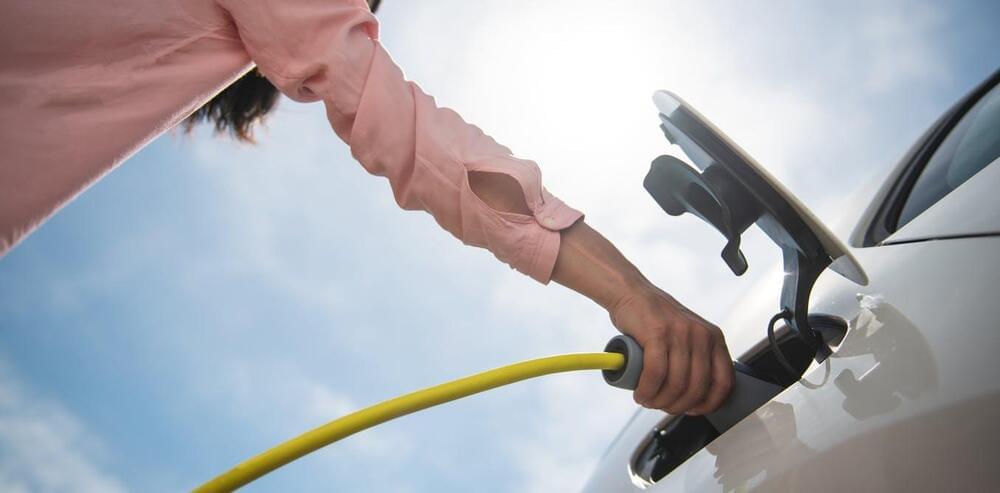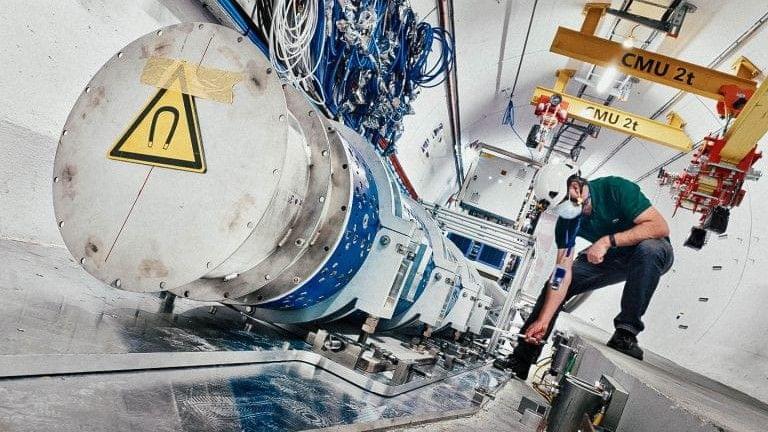Click on photo to start video.
This hyper-realistic robot with fluid movement and a face that could almost pass for human is a huge step towards crossing the ‘uncanny valley.’
MORE: https://on.rt.com/bmayRussia state-controlled media.

Click on photo to start video.
This hyper-realistic robot with fluid movement and a face that could almost pass for human is a huge step towards crossing the ‘uncanny valley.’
MORE: https://on.rt.com/bmayRussia state-controlled media.

Many people believe Australia’s shift to electric vehicles is stuck in the slow lane – another strollout, rather than a rollout. But while federal policies are still lacklustre, most Australians themselves are ready for the shift, according to our recent research.
We found most car-owning households will be able to charge their cars in their garage or driveway. Electric vehicles are also getting more attractive as purchase costs fall and battery range rises.
Australia’s world-beating solar uptake is another plus. Many of our three million solar households would be able to effectively charge their cars for free at daytime.
It is designed as a platform for AI and human-robot interaction (HRI).

The agency wants to ensure a smooth transition to commercial flight.
NASA granted over $400 million to three US commercial space companies. This move is a part of a bigger plan to enable low-Earth orbit for commercial stations while NASA slowly transitions LEO from the International Space Station.



Company received over 20,000 applications, and our client has decided to suspend the request collection. It will take up to 12 month to make the decision. Details: https://promo-bot.ai/media/humanoid_project/ Last week the manufacturer company of Promobot robots was seeking a face for a humanoid robot-assistant which will work in hotels, shopping malls and other crowded places. The company was ready to pay out to somebody willing to transfer the rights to use one’s face forever.
As of Monday, it appears that Promobot has stopped accepting applications for the opportunity. Additionally, further details regarding the project seem to have been removed from their site.
“The Promobot company wants to say thanks to everyone who responded to participation in the project. Today we have received over 20,000 applications and our client has decided to suspend the request collection… Those who didn’t have time to submit an application, please no worries, we are having more projects upcoming. Subscribe to our Instagram and stay tuned.” explained an update on the Promobot website.

Canada’s first commercial Small Modular Reactor (SMR)
Ontario Power Generation (OPG) has selected the BWRX-300 small modular reactor (SMR) for the Darlington new nuclear site, and will work with GE Hitachi Nuclear Energy (GEH) to deploy the reactor. Canada’s first commercial, grid-scale, SMR could be completed as early as 2028.
OPG and GEH will collaborate on SMR engineering, design, planning, preparing licensing and permitting materials, and site preparation activities. Site preparation will begin in the spring of 2022, pending appropriate approvals, OPG said. It aims to apply to the Canadian Nuclear Safety Commission (CNSC) for a construction licence by the end of next year.
Darlington is the only site in Canada currently licensed for new nuclear: OPG was granted a site preparation licence by the CNSC in 2012, after completion of an environmental assessment which included public involvement, but reductions in forecast electricity demand led to a decision to defer plans for new build. OPG last year announced it was resuming planning activities for additional nuclear power generation via an SMR at the site, rather than a large conventional reactor, as previously envisaged. The CNSC recently granted a 10-year renewal to the site preparation licence, which had been due to expire in August 2022.
A thorough breakdown on the process’ that produce light and lights existence and behavior in nature.